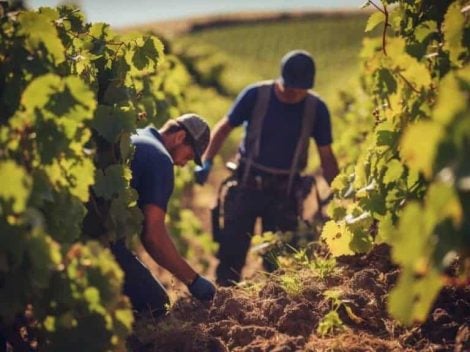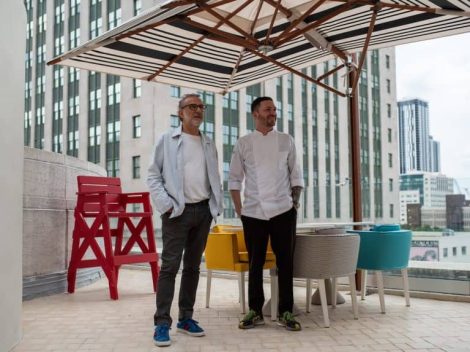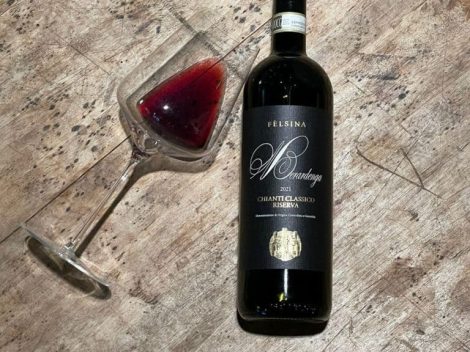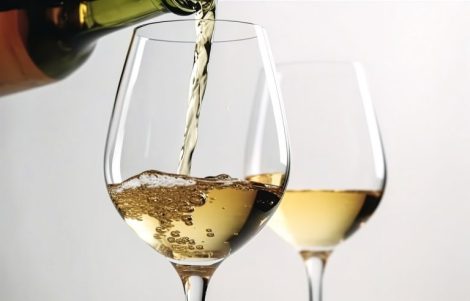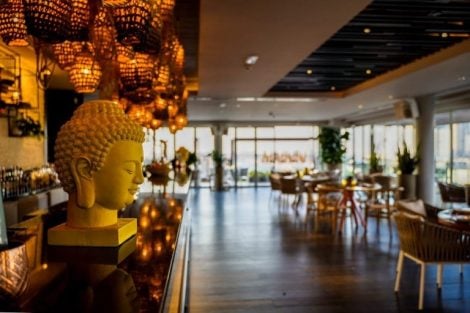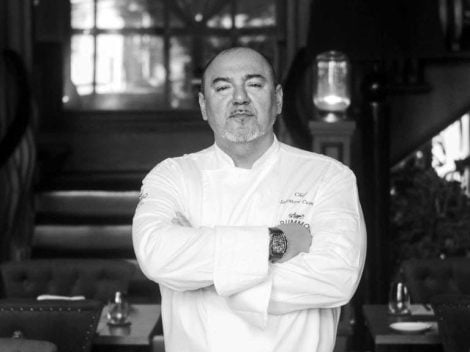Despite the success of the entirely plant-based tasting menu at Niko Romito's Reale, the Abruzzese chef has decided to include three dishes with animal proteins in the current menu. Is this a step backwards? "I have always said that the fully plant-based menu was not just an ethical choice but primarily a creative one. I realized that 12 vegetable courses made gastronomic sense."
He was among the pioneers in Italy of an entirely plant-based tasting menu. Why change?
As I said, the reason is creative. In recent years, I have worked a lot on vegetables and realized that this work could lead to a new approach to animal proteins. However, the vegetable component remains predominant.
Is the fully plant-based menu just a memory now?
No. I no longer distinguish between vegetables and meat; a dish just needs to appeal to me: if I have lamb that convinces me a lot, I'll put it on the menu. It was the same with the plant-based menu - a vegetable worked in a certain way can be very satisfying and make you not miss the meat - which may return.
That reassures us. Is the vegetable trend the direction high-end cuisine should head towards?
For a chef like me, who is always looking to explore new paths, the vegetable theme indeed opens up new solutions and allows for a lot of research. I think of cabbage, cauliflower, or even the artichoke: Roast Artichoke and Rosemary has been on the menu since 2013.
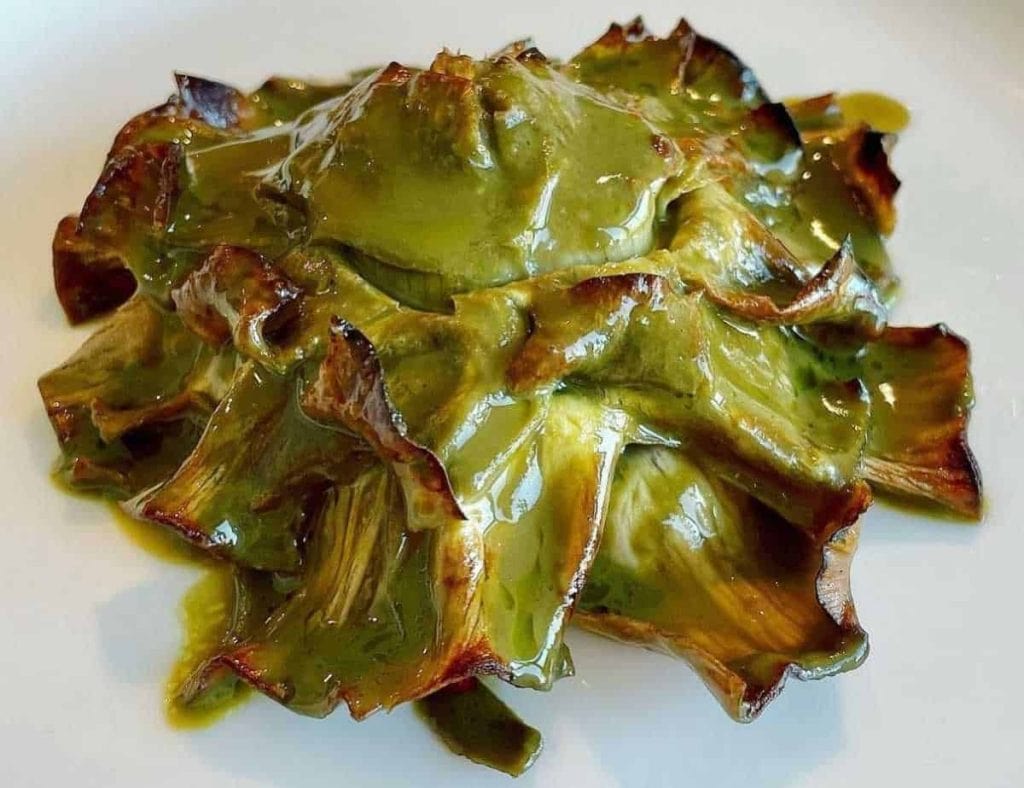
Speaking of research, is there a dish that has given you more satisfaction than others?
Not a single dish, but the work on leaves, leafy vegetables, which allowed me to create broths and sauces using only fiber and water, sometimes adding extra virgin olive oil. It's a completely new endeavor that opened up new paths for me.
After the 150 euro tasting experiment with 15 "historic" dishes, you increased the price. Was it not economically sustainable?
It was a way to attract the local public, knowing that the price factor was crucial at that historical moment (July 2020: we had just come out of lockdown with all the related uncertainties). Also, there was a desire to tell our twenty-year journey. The response was incredible: as soon as we announced it, we were overbooked for weeks. With the 20REALE20 menu, we indeed attracted a curious audience, both young and old, who, after "breaking the ice," remained loyal and now visit us at least once a year, despite the price increase (the current tasting menu is 210 euros for 15 dishes).
Going back to the previous question: why did you increase the price?
Premise: the place was always full, and with an economy of scale, that experiment proved to be economically sustainable. However, we decided to increase the price for several reasons, primarily to attribute real value to the "added value of the kitchen."
Can you explain that?
That menu told the story of our journey up to that point, so there wasn't any ad hoc research work, which requires time and is the real added value that the kitchen brings to the raw material. Right after the 20REALE20, we launched the plant-based menu: it is often thought that vegetable raw materials cost less than animal proteins, without considering what goes into it (these are considerations that young customers don't make, but older generations do). This work is the added value of the kitchen.
A concrete example?
For the broccoli leaf, how much thought, study, and research went into it, how many extractions were made, how much technology was used, how many people were employed to achieve the result. If I were to quote all this in terms of productivity, it would surely have a cost equal to or higher than that of a roasted fillet with vegetables on the side. Research is the highest cost of high-end dining: at Reale, there are 20 people in the kitchen and 8 in the dining room for 25 covers. Plus, I have an à la carte menu.
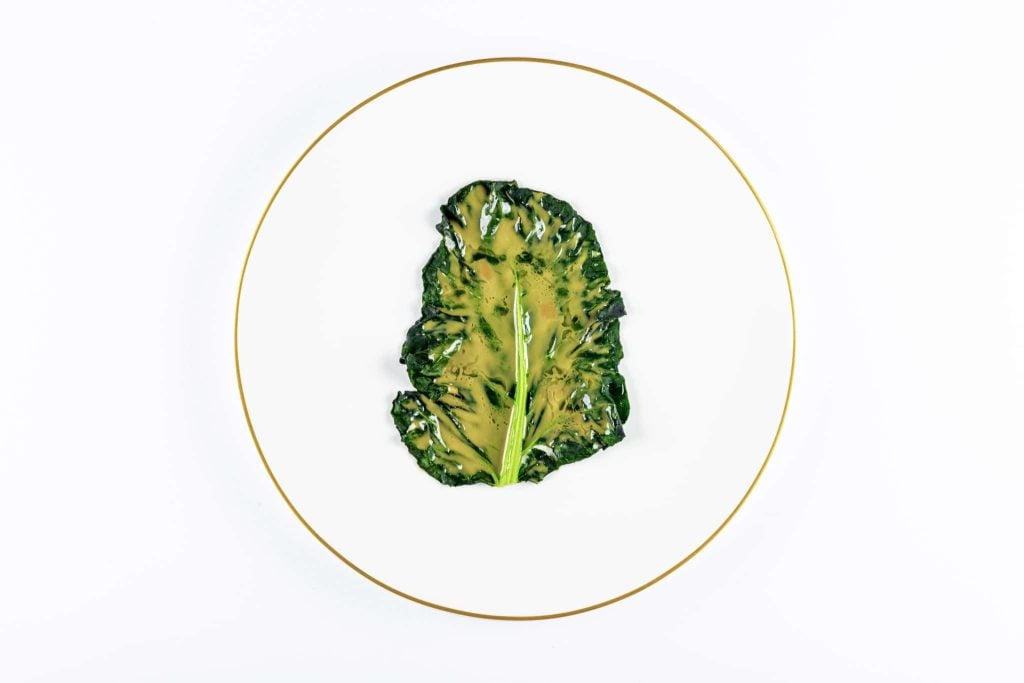
Does having an à la carte menu imply higher costs?
Yes. When we launched the 20REALE20 menu, there was no à la carte menu, and in fact, I was imposing the tasting menu, taking away the freedom of choice from the customer. I wanted to share that advantage I had, in terms of lower management, raw material, and personnel costs, with the customers, thus establishing a relationship of fairness and correctness.
Is the middle range of fine dining destined to disappear?
There will always be a middle range of fine dining: it is a path we have all taken. Moreover, I have faith in the young, there is an interesting response to new content from young customers who understand how central some topics addressed by fine dining are. Saying and writing that fine dining is dead is not true.
A jab at us communicators?
I often hear that fine dining is not economically sustainable: Casadonna Reale has its sustainability, regardless of the other projects I follow. Furthermore, high-end cuisine should be thought of as Formula 1, that is, as a hotbed of research and new results necessary and useful for all of gastronomy.
Giulio Terrinoni said in an interview that the four-day workweek is nonsense. Is it nonsense?
I wouldn't generalize; it depends on the person and their ambitions. If I think of a tennis player, I know for sure that they train up to 15 hours a day to become a professional, just as I wouldn't have become what I am today without working seven days a week. Of course, if you are an entrepreneur, you must respect the collective contract without expecting employees to work more than they should.
For the record, Terrinoni is an enlightened entrepreneur who sometimes covers the accommodation costs of interns. "Young people" and work: what do you think about the narrative that portrays them as less willing to make sacrifices?
That's not what I see at Casadonna. It's true that the number of enrollments at the school (Niko Romito Academy, ed.) has decreased since pre-Covid, but it's equally true that those who enroll seem more motivated.
What do you think of dynamic pricing applied to dining?
Many years ago, Davide Scabin made this proposal. We would need to understand the impact on the public, but it's a proposal with valid reasons.
In collaboration with Bulgari, you have three restaurants in Asia and one in Dubai. What are the trends abroad?
Regarding the crisis of fine dining, abroad it's not even a topic of debate. In Italy, however, fine dining faces unjustified attacks.
Gastronomically, Italy is in good health, there is a strong identity, and high-end dining is doing extraordinary work. Among the trends, I see that regionality is entering high-end cuisine. There is a range of restaurants where technique, maturity, and contemporaneity serve regional ingredients and flavors. Maybe twenty years ago this wasn't the case, we were more tied to the use of conventional ingredients, which were not very different from restaurants in the rest of the world.
Can the high-end dining's search for regional ingredients be seen as a rapprochement to traditional cuisine?
High-end cuisine and regional cuisine are two sides of the same coin, two paths that can be taken in Italy. This is the strength of Italian gastronomy. A well-executed traditional dish and a creative dish are on the same level for me.
How is the Alt project going?
Well, it continues to grow with openings from Rome upwards and abroad, in Berlin and Vienna. I like it a lot as a project and anyway, it stems from high-end dining too.

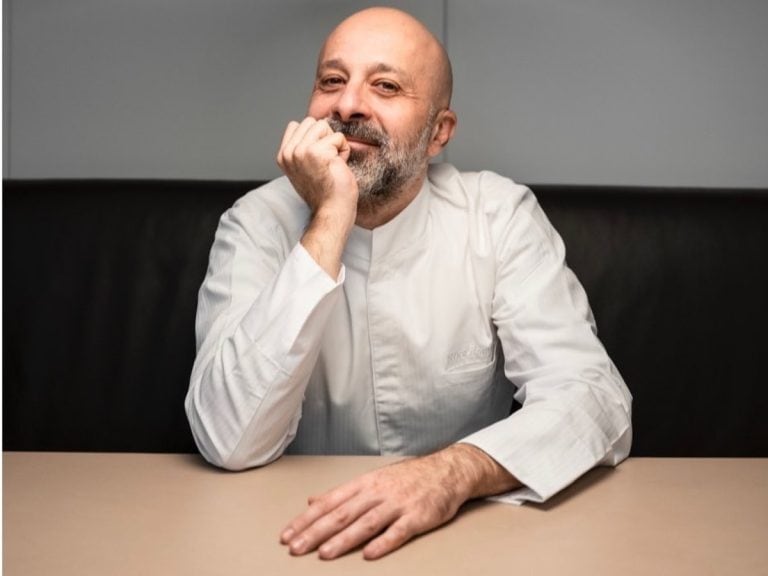
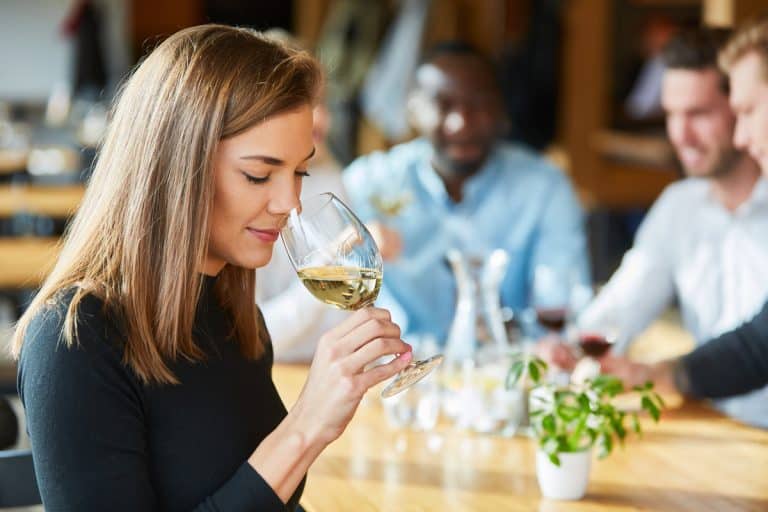 Women are the best sommeliers. Here are the scientific studies
Women are the best sommeliers. Here are the scientific studies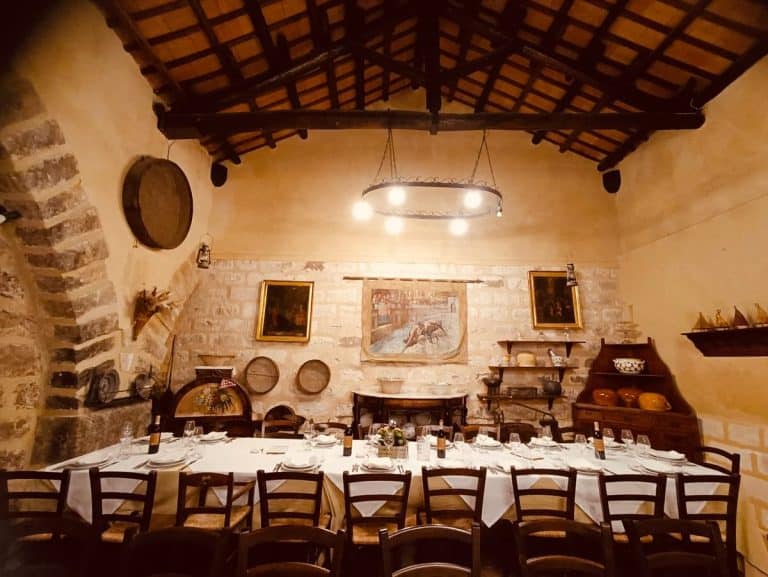 Where to eat at a farm stay in Sicily: the best addresses in the Provinces of Trapani, Palermo, and Agrigento
Where to eat at a farm stay in Sicily: the best addresses in the Provinces of Trapani, Palermo, and Agrigento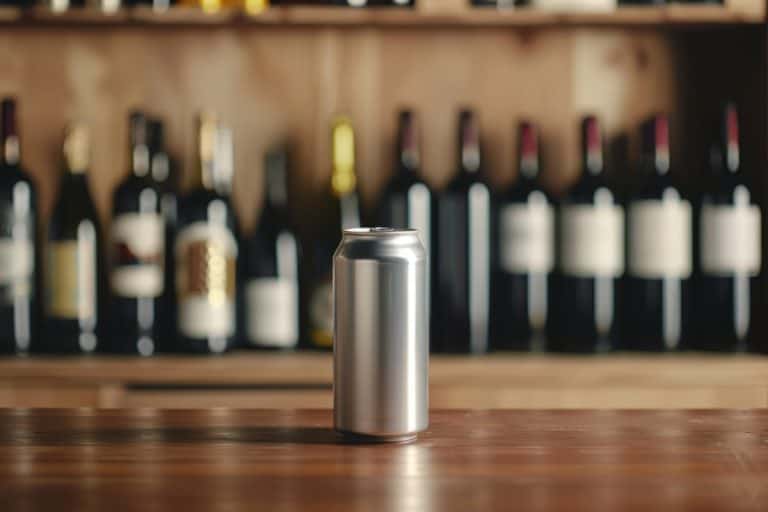 Wine in cans, bottle-fermented, and alcohol free: the unstoppable change in Gen Z’s tastes
Wine in cans, bottle-fermented, and alcohol free: the unstoppable change in Gen Z’s tastes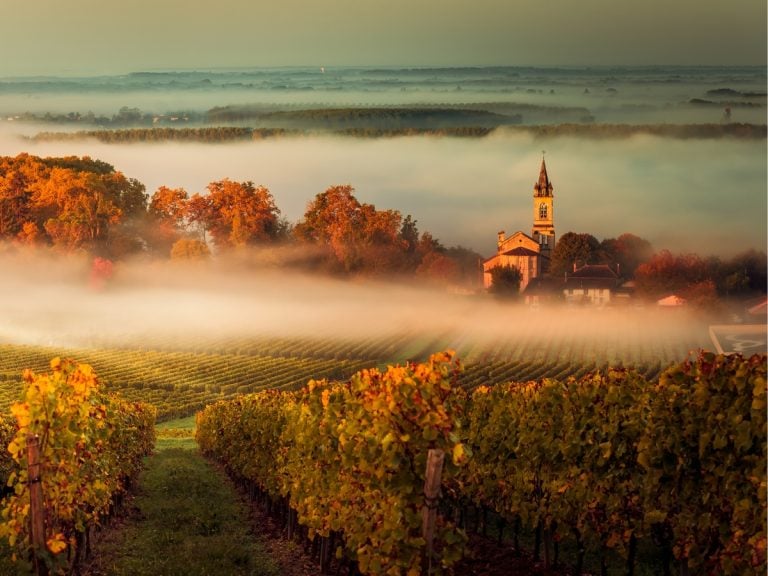 The great Bordeaux exodus of Chinese entrepreneurs: around fifty Châteaux up for sale
The great Bordeaux exodus of Chinese entrepreneurs: around fifty Châteaux up for sale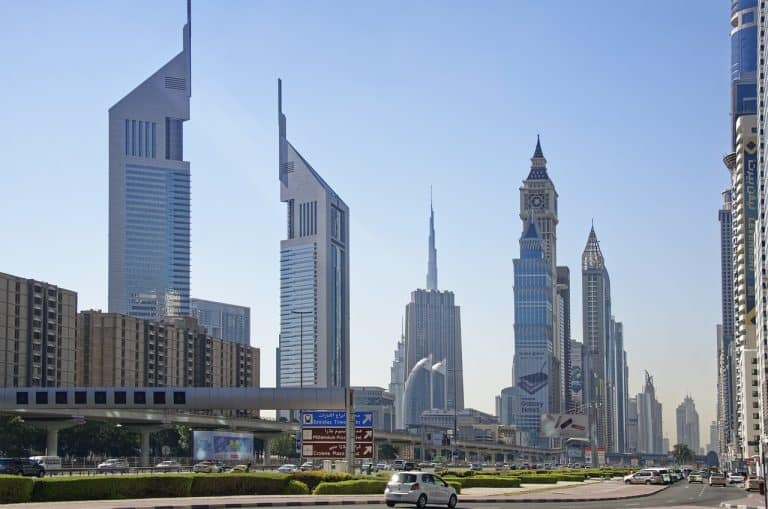 Dubai speaks Italian: a journey through the Emirate's best Italian restaurants
Dubai speaks Italian: a journey through the Emirate's best Italian restaurants